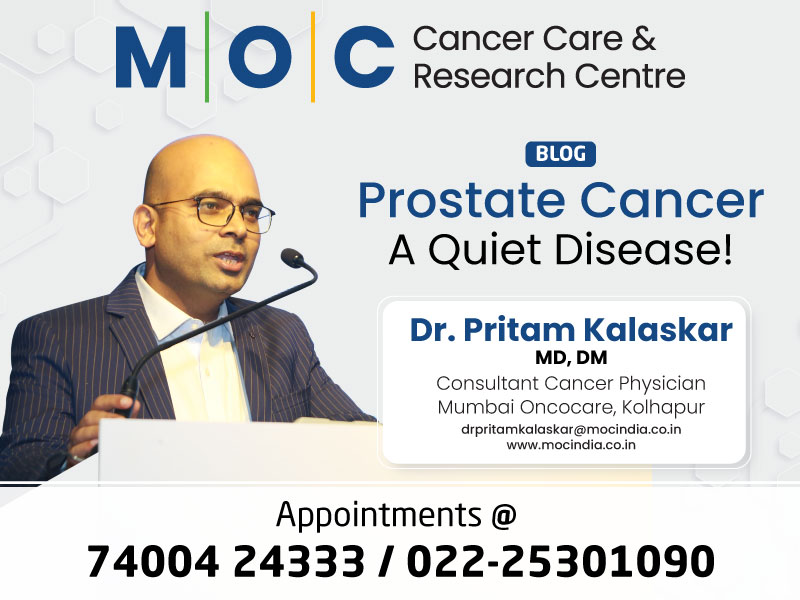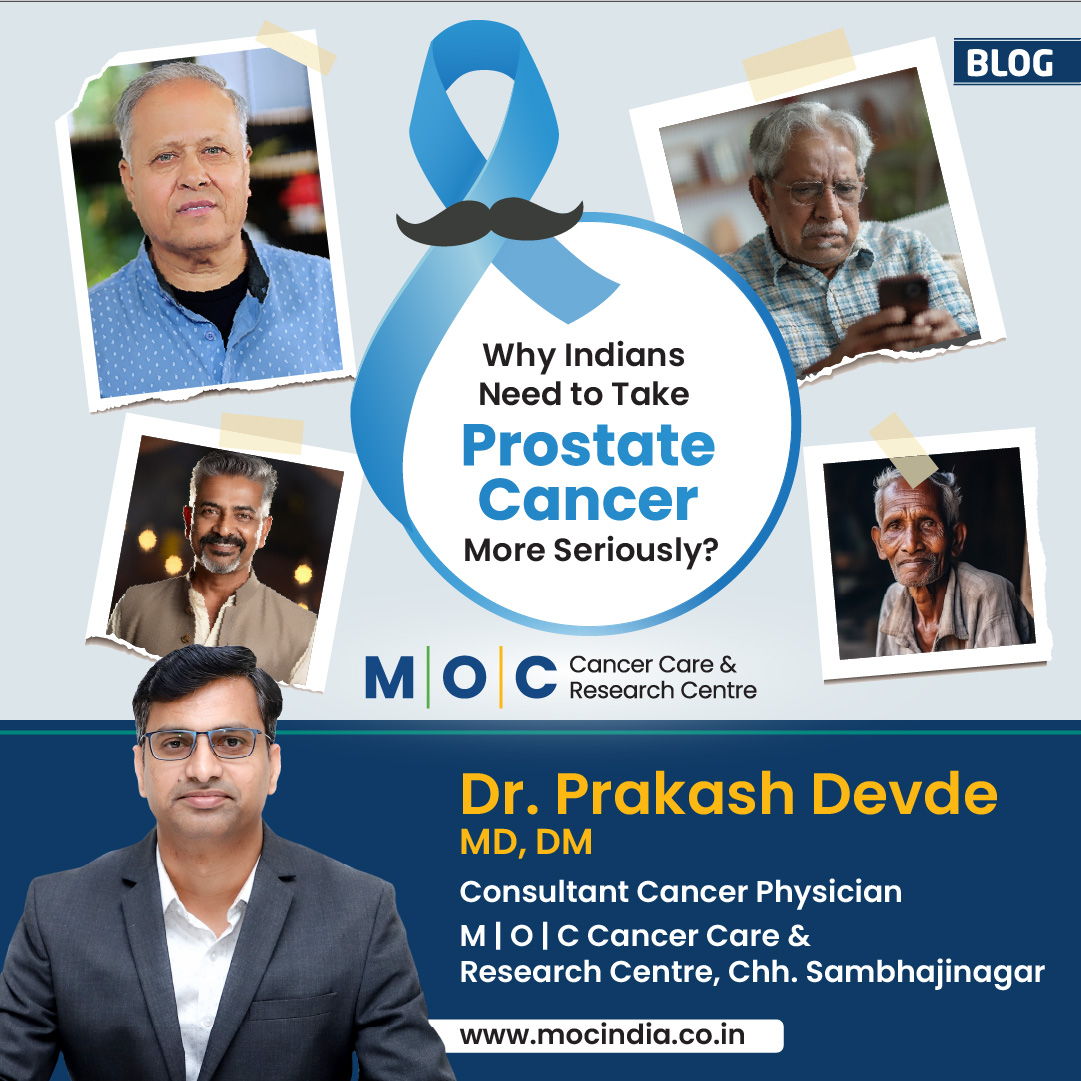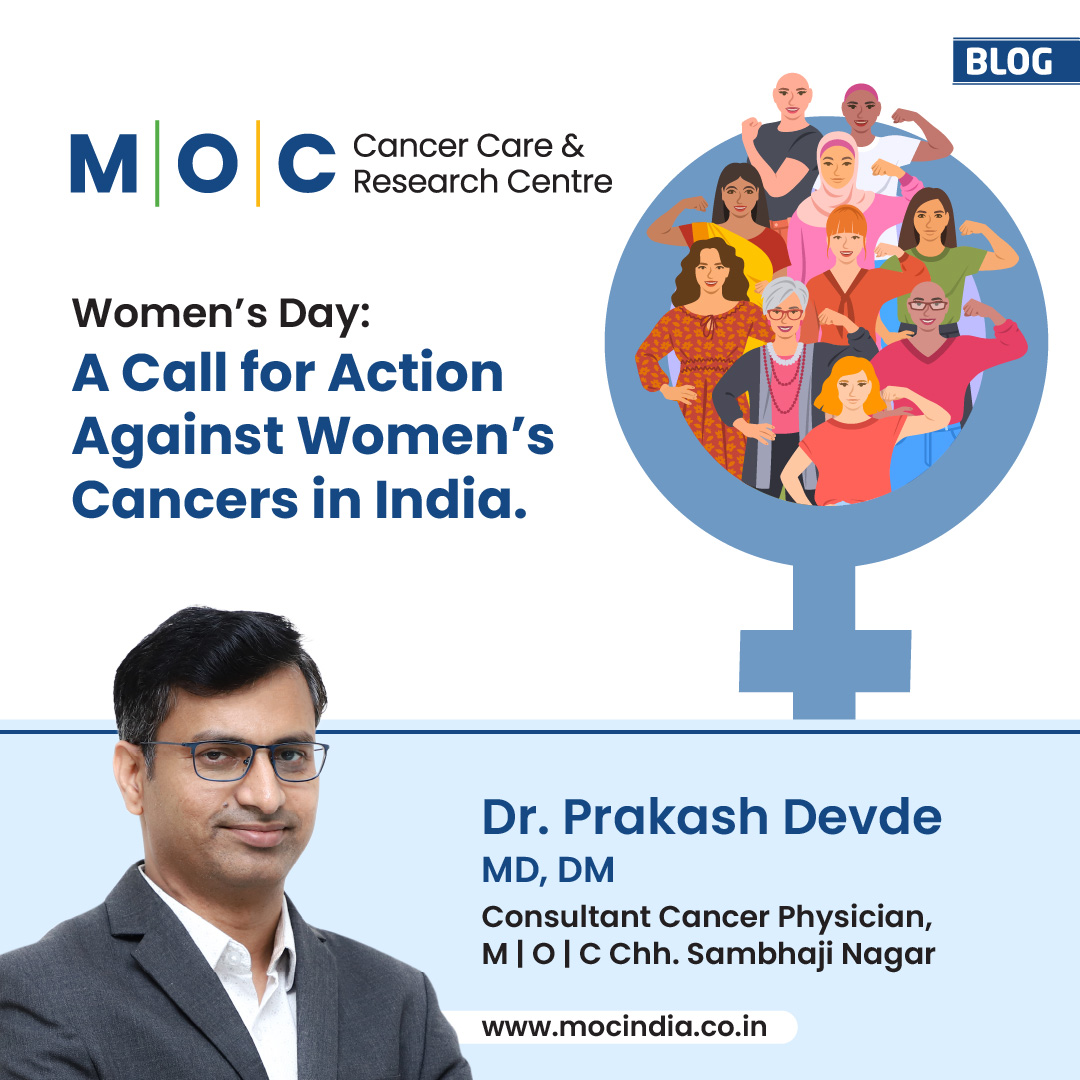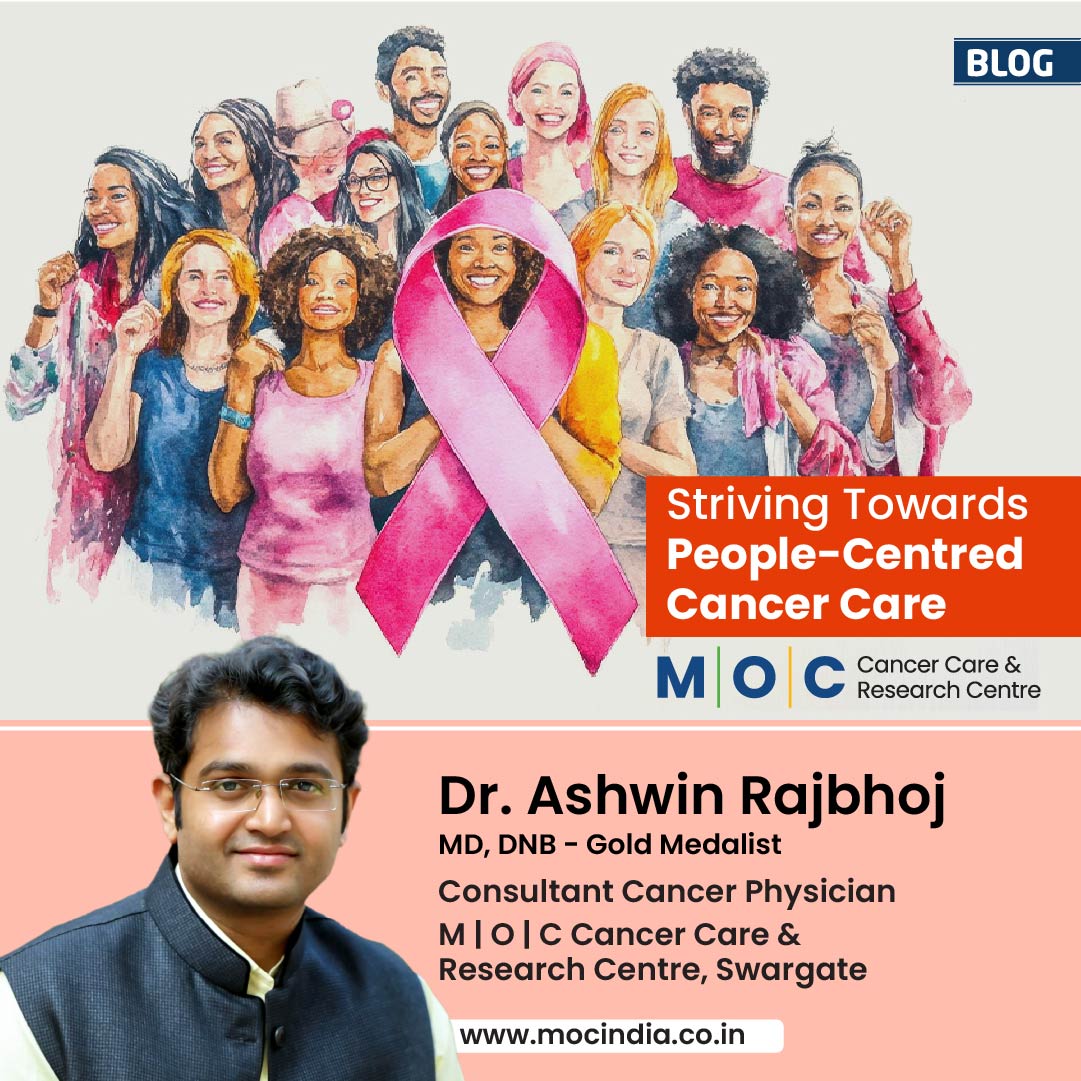Prostate Cancer- A Quiet Disease!



rostate Cancer is the second most common cancer in men worldwide. The incidences of prostate cancer are rapidly rising in India. It is an androgen-dependent or a male hormone dependent cancer for its abnormal growth, survival and spread beyond prostate organ, at least in the initial stages. It usually affects men in the age group of 60+ however we are observing a growing trend of prostate cancer in younger men, in their 40s & 50s, especially in metropolitan cities.
Prostate cancer is a quiet and a slow growing cancer by its biological nature and produces no or very few symptoms that can help identify or diagnose it in early stages. In India, we often see them in advanced stages.
Often, these patients experience symptoms as follows.
- Frequent urination- especially at night
- Pain or burning sensation while urinating
- Blood in the urine or semen
Mumbai Oncocare Centre, Thane
These symptoms are collectively called as lower urinary track symptoms. Persistent pain in lower back, pelvis, hips or thigh & sudden weight loss is also experienced by many patients, especially when prostate cancer has spread to nearby bones or organs around prostate. All these symptoms can be suggestive of pre-cancerous state known as benign prostate hyperplasia (BPH), or prostate cancer.
The reason for late diagnosis is often a lack of awareness about the disease itself and the lack of screening at an appropriate time. Men between 55-69 years of age should discuss prostate cancer screening with their doctor and perform Prostate Specific Antigen (PSA) test as a basic and primary screening method. Those men with strong family history should proactively discuss their screening plan with doctors much earlier.
The good part about it is that even in the late stage, when it has spread to distant organs in the body, prostate cancer is largely treatable and controllable using its hormone dependability. Treatments that are able to restrict or withdraw the supply of androgen / testosterone to prostate cancer cells work wonders in controlling the disease. This withdrawal of androgen source in the body can be achieved using a surgical procedure as well as using medicines. The choice between the treatment options is made based on patient's physical condition, their mental preparedness for surgical procedure and also their finances.
Medical science in the treatment of prostate cancer is rapidly evolving to offer plethora of treatment options and medications for patients even after they become hormone treatment resistant. Most of these medications are targeted agents that can be consumed orally; hence improve treatment adherence and treatment compliance. Chemotherapy is also combined along with these targeted agents to achieve desired results.
The survival and quality of life of prostate cancer patients have improved dramatically over last few years. It is important that men proactively engage in screening at an appropriate age and reason and report their symptoms without delay. This will ensure early diagnosis for the timely treatment and best treatment outcomes in prostate cancer.
Dr. Pritam Kalaskar
MD DM
Sr. Consultant Medical Oncologist
Latest Blogs
-
![Why Indians Need to Take Prostate Cancer More Seriously? An Oncologist's Opinion]()

- 20th Mar, 2025
- Why Indians Need to Take Prostate Cancer More Seriously? An Oncologist's Opinion
-
![Women’s Day: A Call for Action Against Women’s Cancers in India.]()

- 10th Mar, 2025
- Women’s Day: A Call for Action Against Women’s Cancers in India.
-
![A Unique Perspective on Women and Cancer- A Food for Thought]()
.jpg)
- 3rd Mar, 2025
- A Unique Perspective on Women and Cancer- A Food for Thought
-
![Bridging Hope and Equity for Young Warriors this International Childhood Cancer Day]()
.jpg)
- 18th Feb, 2025
- Bridging Hope and Equity for Young Warriors this International Childhood Cancer Day
-
![World Cancer Day 2025: United by Unique, Empowered by Hope.]()

- 5th Feb, 2025
- World Cancer Day 2025: United by Unique, Empowered by Hope.
-
![Striving Towards People-Centred Cancer Care]()

- 3rd Feb, 2025
- Striving Towards People-Centred Cancer Care
Book Your Appointment








